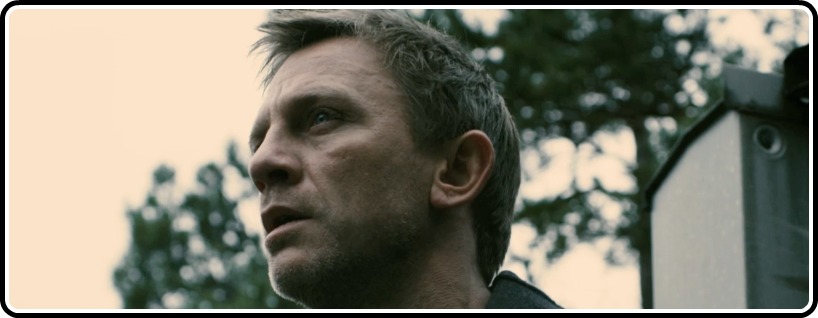Spielberg and adventure films. Woo and action films. Kubrick and novel adaptations. Jackson and films featuring dwarves. Joking aside, each great filmmaker has their go to genre. The genre that they’ve helped re-invent or change. To David Fincher, that’s the thriller genre.
Be it his all-time great thriller masterpiece ‘˜Seven’ or his serial killer drama ‘˜Zodiac’, Fincher, a former music video director (best known for probably his take on Madonna’s Vogue), not only creates the greatest of great opening credit sequences, but when he is tasked with looking into the seedy side of human nature, what follows happens to be breathtaking. Now, it’s his turn to take a crack at the best-selling ‘˜The Girl With The Dragon Tattoo.’ And while there are a few hiccups, he has just cracked another film right out of the ball park.
Based on the first novel in the beloved and insanely popular ‘˜Millennium Trilogy’ from writer Stieg Larsson, the story of ‘˜The Girl With The Dragon Tattoo’ follows a pair of seemingly star-crossed outcasts of sorts; one being a jilted reporter on the hunt for some good press and possibly revenge following a failed libel suit, and the other a bi-sexual hacker with a penchant for Mohawks and ass-kicking. With the former, Mikael Blomkvist, being tapped to find a woman, or her killer, close to a wealthy and aging business man, must team with Lisbeth Salander to bring this person to justice, and help solve a four decades long mystery. With the brooding tone of ‘˜Seven’ at its core, and the distilled and sterile nature of its procedural narrative in its heart, Fincher has crafted a film utterly devoid of anything remotely resembling a heart, but has also crafted a film that is both brutally beautiful, and beautifully brutal.
The true star of this film is its lead, Rooney Mara. Embodying Lisbeth in a way unlike the previous screen take on the character, portrayed by star Noomi Rapace, Mara is both fierce and fearless (an adjective I rather hate when describing a performance, but here it fits perfectly), and yet takes her character on a palpably changing narrative and emotional arch. A woman truly on the lookout for a place in this world, Salander, as played by Mara here, is both immensely strong and yet distinctly vulnerable. Over the course of the film, Lisbeth finds exactly what she thinks she has been looking for, only to get punched back down to reality come the film’s final moments, this time, in a far different and more emotional way.
Co-star Daniel Craig is also great here as the newspaper man Blomkvist, though taking on a far different role. Nothing emotionally demanding both performance or arch wise, Blomkvist in a way is the most stagnant of characters. Simply used to move forward the film’s plot, his story is neither engrossing nor all that inventive. His performance however is far the opposite. Craig imbues Blomkvist with this sense of charm and also true regret, making him a tactile member of this story, and also a character one can, on some level, connect with. Supporters Stellan Skarsgard and Christopher Plummer are also great, as two members of the Vanger clan, who hire Blomkvist. Skarsgard is especially great as Martin, a rather creepy clan member with a seemingly seedy past.
However, the film isn’t without reproach. Clocking in at nearly 180 minutes in length, the film does suffer from poor pacing, and a rather cumbersome narrative flow. The final act feels a bit tacked on, and save for an ending that grows on you the longer you step away from it, the film’s finale feels stale and is ultimately a possible game changer for a pair of characters. Also, as mentioned above, the film lacks anything closely resembling a heart, and it is this cold and often called ‘ineffectual’ nature that may leave some viewers wondering what exactly the point of the film truly is. That said, Fincher does more than save it.
The prototypical David Fincher film, ‘˜Dragon Tattoo’ is utterly stunning from frame one, to the opening credits, all the way to the final, possibly controversial conclusion. Fincher uses his patented clinical filmmaking style, from his dense frames to his icy cinematography, the only thing more frigid and brooding than the Sweedish landscape is the way that Fincher shoots it. Toss in an equally great score from the team of Trent Reznor and Atticus Ross, and you have a film that may be considered soul-less, but it is also one that can be equally called great.




